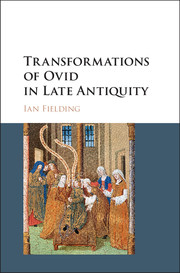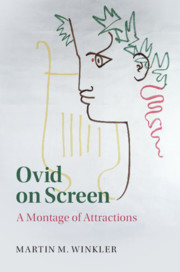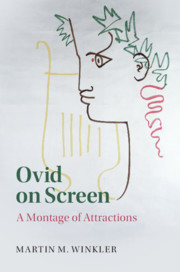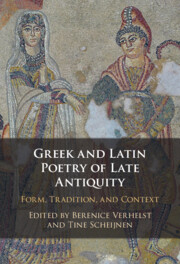Transformations of Ovid in Late Antiquity
Ovid could be considered the original poet of late antiquity. In his exile poetry, he depicts a world in which Rome has become a distant memory, a community accessible only through his imagination. This, Ovid claimed, was a transformation as remarkable as any he had recounted in his Metamorphoses. Ian Fielding's book shows how late antique Latin poets referred to Ovid's experiences of isolation and estrangement as they reflected on the profound social and cultural transformations taking place in the fourth, fifth and sixth centuries AD. There are detailed new readings of texts by major figures such as Ausonius, Paulinus of Nola, Boethius and Venantius Fortunatus. For these authors, Fielding emphasizes, Ovid was not simply a stylistic model, but an important intellectual presence. Ovid's fortunes in late antiquity reveal that poetry, far from declining into irrelevance, remained a powerful mode of expression in this fascinating period.
- Provides the first comprehensive study of Ovid's reception in late antiquity, addressing a significant gap in existing scholarship on Ovid's afterlife
- Presents detailed analysis of a range of important late antique authors from Gaul, Spain, Italy and Africa over a period of two centuries, situating them in their literary and historical contexts
- Highlights the dynamism and sophistication of late Latin poetry
Reviews & endorsements
'… excellent book on Ovid’s reception in late antiquity … illustrates how productive the reuse of classical models could be in the period … intelligent, lucid, and well-produced monograph brings late Latin poetry alive.' Scott McGill, Bryn Mawr Classical Review
'… excellent book on the reception of Ovid … Fielding is able to present not only Ovid's powerful legacy, but also, and perhaps more importantly, draw needed attention to the great intellectual potential in reassessing the late antique Latin poets.' Stephen M. Kershner, The Classical Journal-Online
Product details
November 2017Hardback
9781107178434
266 pages
235 × 157 × 16 mm
0.57kg
Available
Table of Contents
- Introduction: a poet between two worlds
- 1. Ovid Recalled in the Poetic Correspondence of Ausonius and Paulinus of Nola
- 2. Ovid and the Transformation of the Late Roman World of Rutilius Namatianus
- 3. The Poet and the Vandal Prince: Ovidian Rhetoric in Dracontius' Satisfactio
- 4. The Remedies of Elegy in Ovid, Boethius and Maximianus
- 5. The Ovidian Heroine of Venantius Fortunatus, Appendix 1
- Conclusion: Ovid's Late Antiquity.






